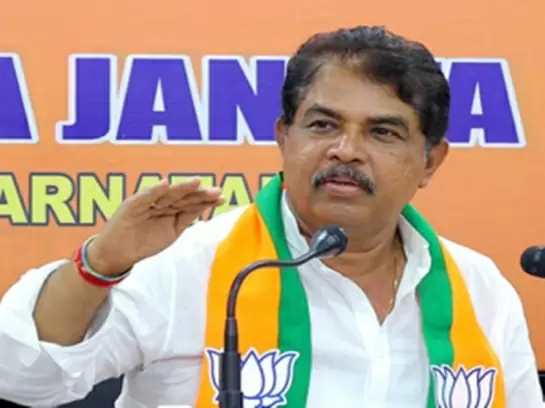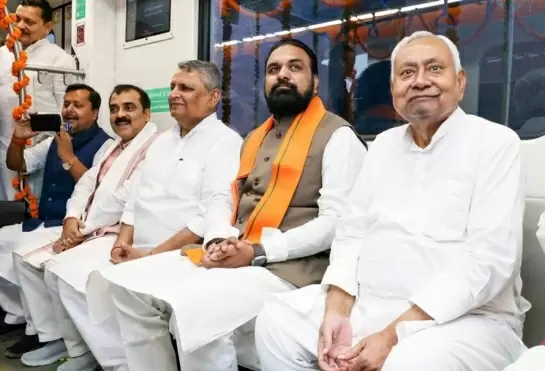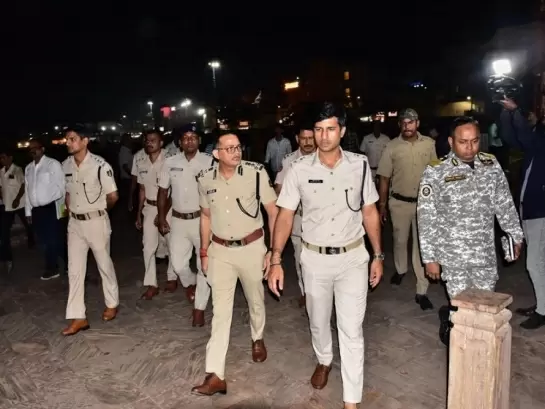Tripura govt likely to challenge HC ban on animal sacrifice
28-September-2019
In a landmark judgment, the Tripura High Court has banned the centuries-old tradition of animals sacrifice in religious places in the northeastern state, while the state government is likely to file petition against the judgement before the Supreme Court, top officials said here on Saturday.
Tripura royal family leaders said that the High Court cannot overrule the provisions of the merger agreement which was signed on October 15, 1949 between regent Maharani Kanchan Prabha Devi and the Governor General of India.
A Division Bench of the High Court comprising Chief Justice Sanjay Karol and Justice Arindam Lodh banning the animals sacrifice in religious places in Tripura, in a landmark judgement on late Friday said : "No person including the state shall be allowed to sacrifice of any animal or bird within the precincts of any of the temples within the state of Tripura."
Responding to a Public Interest Litigation (PIL) filed by former District Judge Subhash Bhattacharjee, the High Court directed the Chief Secretary, all District Magistrates and Superintendents of Police to impose the ban.
The Court observed that the Tripura Government has proposed to turn Tripureshwari temple (Mata Tripura Sundari Temple) in southern Tripura's Gomti district as a favourite international tourist destination and people of all beliefs and faiths are likely to visit in large numbers in the 518-years-old temple, one of 51 "Peethas" of Hindu Centres of worship.
"Anyone of the devotees desirous of offering any animal out of personal faith, belief or desire, may do so, but, shall take back the animal and under no circumstance any activity of animal sacrifice shall be permitted to be carried out," the court said.
The Division Bench of the High Court also asked the Chief Secretary to install CCTV cameras in the temples and keep a tab on the footage on monthly basis.
The Court was of the view that people are required to be sensitised on this issue by the government. "Concerned officials (DMs and SPs) shall be personally liable for implementing the High Court order".
Meanwhile, animal rights activists have welcomed the ban on animal sacrifice saying, it would end centuries old cruelty to animals in the name of religion.
Animal and bird sacrifice in the religious places and temples in Tripura are carried out as per the merger agreement between the erstwhile royal family of Tripura and the Union Government.
The District Magistrates, who are being the "Sebayet" (custodian) of the temples by virtue of their position, are responsible for looking after all the rituals of the 14 notified temples including animal sacrifice.
Tripura's Advocate General Arun Kanti Bhowmik told IANS that the state government after studying the High Court verdict more probably will file petition before the Supreme Court against the judgement.
At the end of the 1355-year-rule by 184 kings, on October 15, 1949, the erstwhile princely state of Tripura came under the control of the Indian government after a merger agreement was signed between regent Maharani Kanchan Prabha Devi and the Indian Governor General.
The merger agreement made it mandatory for the Tripura government to continue the sponsorship (including sacrifice of animals at government expenditure) of several traditional tribal pujas and 14 temples, including the Mata Tripura Sundari Temple run by the Hindu princely rulers.
This continued for around seven decades. A full-fledged department - Public Place of Worship (PPW) or 'Debarchan Vibhaga' functioning under district magistrates in four of Tripura's eight districts now has this responsibility and bears the entire expenditure of these temples in Tripura.
Tripura's royal family scion Pradyot Bikram Manikya Deb Barman said that he is personally against cruelty to animals but the High Court cannot overrule the provisions of the merger agreement signed on October 15, 1949.
"Before delivering the verdict, the High Court should consult with the stake holders and the civil society. The Court should not intervene into the traditional social, cultural and religious belief," Deb Barman told IANS.
The High Court order said that the traditional practice of animal sacrifice totally banned at Gudhima Temple in Nepal and in a very old temple in Himachal Pradesh.
The High Court in its 72-page judgement asked the District Magistrate and Collectors of all the districts to initiate all measures of educating and sensitizing the general public of the constitutional mandate and its importance, relevance and significance, more so, of adopting an attitude of love, humanism and compassion towards all animals and birds.
"The state government should give due publicity and also sensitise the general public of the constitutional values and implementation of the court order," the High Court said.IANS
Red Fort Blast: NIA Sets Up Special Team Led By ADG Vijay Sakhare
Red Fort Blast Linked To JeM, AGH Module; Key Suspect Umar Killed
Umar Key Suspect In Red Fort Blast; Suicide Bombing Angle Emerges
Red Fort Car Explosion Leaves 10 Dead; Terror Angle Suspected
Car Blast Near Red Fort Metro; Multiple Vehicles Catch Fire









